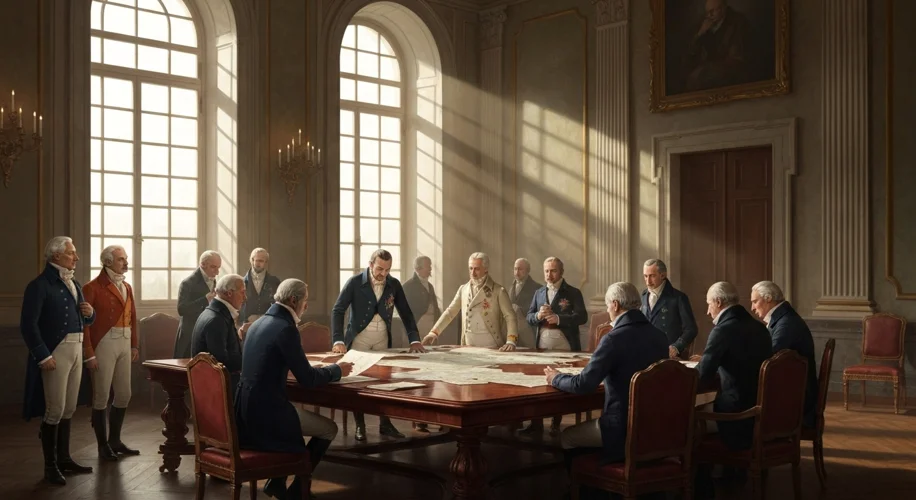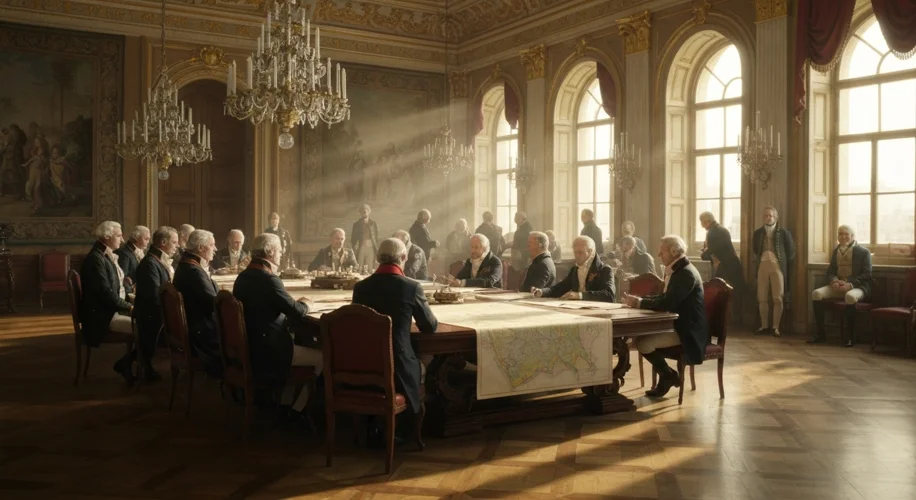History is replete with moments when the victors of conflict, often great powers, have sought to dictate terms of peace to the vanquished. This imposition, while seemingly a straightforward path to stability, frequently sowed the seeds of future discord. The overarching question remains: can true peace be enforced from without, or must it organically arise from the will of those most affected?
Consider the aftermath of the Napoleonic Wars. The Congress of Vienna in 1814-1815, convened by the victorious European powers, redrew the map of Europe with a heavy hand. Figures like Austria’s Metternich aimed to restore monarchical order and suppress burgeoning nationalist sentiments, effectively imposing a peace designed to preserve the existing power structures. While it ushered in a period of relative calm, it did so by ignoring the desires of various peoples for self-determination, laying the groundwork for the revolutions of 1848 and beyond.

Another striking example is the Treaty of Versailles in 1919, which officially ended World War I. The Allied powers, particularly France and Britain, driven by a desire for retribution and security, imposed harsh terms on Germany, including crippling reparations and territorial concessions. While intended to prevent future German aggression, the treaty fostered deep resentment and economic instability within Germany, arguably contributing to the rise of Nazism and the outbreak of World War II. The voices of the German people, suffering under these impositions, were largely absent from the negotiation rooms.
In contrast, history also offers glimpses of more inclusive approaches. The Treaty of Tordesillas in 1494, while problematic in its division of the newly discovered world between Spain and Portugal, at least acknowledged the need for papal arbitration. More modern diplomatic efforts, especially in the post-colonial era, have increasingly striven for a more participatory model. The Dayton Accords in 1995, which ended the Bosnian War, involved intensive negotiations with the parties directly involved, despite the significant mediation efforts of external powers like the United States. This focus on local ownership, while imperfect, aimed to build a more sustainable peace by giving agency to the people most impacted by the conflict.
The challenge lies in balancing the inherent power dynamics of international relations with the principle of self-determination. Great powers often possess the military and economic might to enforce their will, yet history demonstrates that peace imposed without the consent and active participation of the affected parties is often a fragile, temporary truce. True, lasting peace requires diplomatic mechanisms that empower local actors, ensuring that negotiation tables are populated not just by those who can project power, but by those who must live with the consequences of the decisions made. The art of diplomacy, then, is not merely about ending wars, but about fostering the conditions for enduring peace, built on the foundation of shared understanding and mutual respect, rather than the dictates of the mighty.

